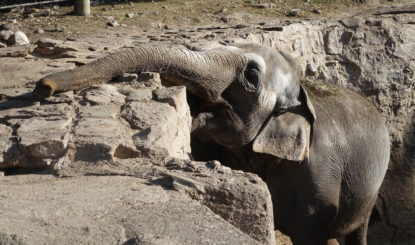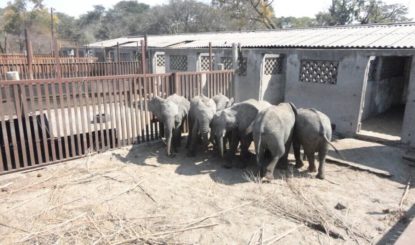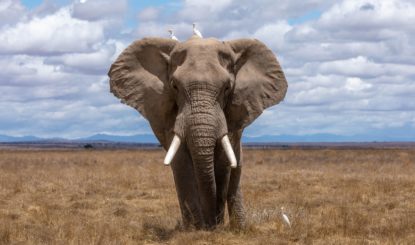Media release: Today is World Elephant Day, but elephants have little to celebrate
In the seven years between 2007 and 2014, Africa lost a third of its elephants, mostly due to the insatiable demand for ivory. If African elephants continue to be killed at this rate, the species could be extinct in the wild within a decade. “As long as the international and domestic ivory trade continues to be allowed, elephants will never be safe,” says Vera Weber, President of Fondation Franz Weber that fights for a worldwide and complete ban of the trade in ivory.
Botswana – Africa’s last elephant stronghold with 130’000 individuals – has, in just the last four years, suffered an elephant poaching increase of 600%. If African elephants continue to be killed at this rate, the species could be extinct in the wild within a decade.
The situation is made worse by the insistence of some southern African countries – Zambia, Botswana, Namibia, South Africa and Zimbabwe – to sell off their huge national ivory stockpiles in a desire to make a financial profit. These countries are submitting proposals for an unrestricted international trade in ivory at the upcoming CITES Conference of the Parties (CoP18) to be held in Geneva, Switzerland between the 17th and 28th August 2019.
For Fondation Franz Weber (FFW), who been working for the protection of the African elephants for the past 40 years, the re-opening of an international trade in ivory will be a death knell for Africa’s elephants.
“The only time in the last 40 years that elephant populations have been able to stabilise and recover, was the decade after 1989,” says Weber. “This is when the Conference of Parties, which took place here in Switzerland, gave elephants the highest possible protection and included them under an Appendix I listing, meaning that no commercial international trade in ivory was permitted.”
Unfortunately, in 1997 and 2000 the southern African countries convinced the world that their elephant populations were stable enough for a downlisting to Appendix II thus opening the possibility of selling their ivory stockpiles. Two large sales (in 1999 and 2008) were permitted and the stockpiles were duly sold to Japan and to China.
The sales created an unprecedented demand for ivory in these countries (especially China) that, in turn, triggered a tidal wave of poaching. This saw around 150,000 elephants killed for their tusks in the decade after 2008.
“Now,” warns Weber “the southern African countries want to sell their stockpiles again. It has been proven time and again that these sales have wiped out ten-of thousands of elephants.”
FFW is supporting the call of the majority of African nations calling for the highest protection of African elephants. 32 African nations under the banner of the African Elephant Coalition have tabled a proposal calling to once again place all elephants on Appendix I.
“We are fighting for history to repeat itself in Switzerland, exactly thirty years since that 1989 decision in Lausanne – to save elephants once and for all” says Weber.
Further information
Project page: End trading in endangered species!
Media Release – August 12, 2019 (pdf)
Infoflyer CITES Proposals elephants: english, french




